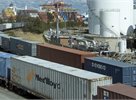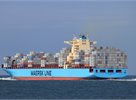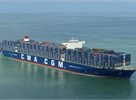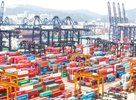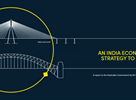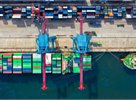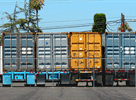
Blockchain possibilities for supply chain
To the layman, Blockchain may be synonymous with artificial intelligence (AI), Internet of Things (IOT) or big data, but how is it different? Experts suggest that Blockchain could be a fundamentally transformative technology. Why so?
Around 10,000 years ago when human civilisation began to develop simple ledgers, other concepts such as numbers, writing, recording of history and money also emerged. Indeed history suggests that ledger technology is closely linked to human society and culture. Historically whenever ledger technology has changed, it has had a significant impact on virtually everything else. In the 14th century, for example, the beginning of double-entry book keeping gave rise to capitalism, along with the ability to audit and to create books, finance and companies. Then, in the 20th century, digital ledgers gave rise to global capitalization.
Enter Satoshi Nakamoto, the unknown person or people, who devised the first blockchain database 11 years ago, and change occurs yet again.
So how can Blockchain technology influence modern supply chains? A challenge for today’s supply chains operating in a global economy is to reduce the cost of trust. Current global estimates put the cost of trust at 3 trillion US dollars. Trading partners want to exchange documents, title and funds in a seamless transaction. Consumers looking at the supply chain want to see all the way to the back; they don’t want to just have to trust the brand, or rely on the limited information provided on current labelling. More and more information is demanded such as country of origin, environmental impact, sustainability and ethical practices, all of which add layers of information to already complex supply chains. As the new economic infrastructure, Blockchain has the potential to facilitate trust between the parties to all sorts of transactions by providing access to all the data necessary to make informed purchasing decisions and conduct seamless international trade transactions.
Modern technology has become highly effective at lowering the cost of moving goods with ultra-large ships and aircraft, complex cargo consolidation practices, centralised distribution centres etc. However, the cost of moving information and documentation is still in the 19th century.
Blockchain technology offers a way to record transactions or any digital interaction in a way that is secure, transparent, efficient, auditable and highly resistant to outages. Stakeholders will not have to trust each other but will be able to trust the security built into the system. Blockchain will facilitate secure access to the massive amount of data produced along the supply chain. It will ensure that human rights and codes of conduct are respected along the chain. The incorporation of fraud detection technology will lower the risk to reputation.
According to an IBM study, international transport is growing ever-more complex, and inconsistent information interchange increases the risk of “blind spots” and fraud in clearance processes. Blockchain technology makes the freight’s entire history available on a standard platform, making it easier to assess various types of risk.
What does this mean for the consumer? With Blockchain, consumers should have full brand transparency and will be able to make purchasing decisions based on the environmental and social responsibility of a company. One study suggests that 54% of consumers want more product information ranging from where their meat is raised and the working conditions in the factory where their clothes are sewn, to the provenance of the grapes used to make the wine they are drinking. Blockchain will facilitate all of this and more.
If you wish to hear more on this topic please join myself and a panel of industry experts on the 28th of Feb at the Blockchain Centre. Please follow the link below for more details.
https://info.sclaa.com.au/widget/event-3252634?CalendarViewType=1&SelectedDate=2%2F4%2F2019
-
Australian Governments Modern Manufacturing Strategy
-
Boxship owners see 13-year high in charter rates as carriers hunt for tonnage
-
DP World and UNICEF to support COVID-19 vaccine distribution
-
Buoyant ocean carriers set to roll out peak season surcharges months early
-
Trade protectionism a barrier to the recovery of global economies, warns ICS
-
Outlook for large widebody looks chilly in a hot freighter conversion market
-
EVEN AS THE WORLD STRUGGLES
-
Maersk to launch carbon neutral vessel
-
STATE PREMIERS URGED TO INTERVENE ON CROSS-BORDER ISSUES
-
PORT BOTANY RAIL DUPLICATION FAST TRACKED
-
Covid vaccine: is air cargo ready for 'the biggest product launch in history?
-
Logistics protests as Melbourne lockdown puts the brakes on supply chains
-
Demand driving transpacific prices sky high, with Asia-Europe benefiting too
-
Carriers follow through with capacity disicpline and blank more sailings
-
Indonesian Free Trade Agreement - economic opportunity opens up
-
Department of Agriculture turns away import vessel
-
Good Compliance Update - December 2019
-
Scale-less weighing of containers for SOLAS VGM
-
Patrick East Swanson Terminal Melbourne - Reductions in night shift road R&D operations
-
Shippers brace for delays as coronavirus keeps China's factories closed
-
Coronavirus containment measures and the impact on your China cargo.
-
2019/2020 Stink bug seasonal requirements
-
BAF calculator may help ease uncertainty over looming IMO 2020 fuel rule
-
From 15 to 5 in just a few years - shippers' declining choice of container carriers
-
Government money to boost Queensland export
-
Freight forwarding scam warning
-
Marine insurance case study
-
Australian Ports infrastructure not keeping up with global trends
-
Truckies heartened by support to stopping port surcharges
-
Victorian Transport Association (VTA) State Conference 2019 - Making the case for inland rail
-
Protection from tariffs a feature of Australia and Hong Kong deal.
-
BMSB UPDATE 45 - WA Biosecurity Alert












